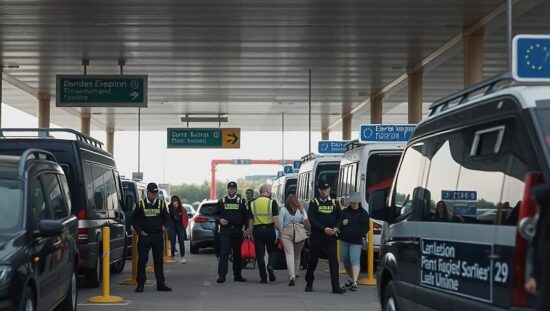Germany’s reinstated controls at its internal borders have incurred costs of 80.5 million Euros since their implementation in mid-September 2024, according to government figures. Responding to a parliamentary inquiry from the Left party, the Federal Ministry of the Interior detailed quarterly expenses ranging from 24 to 29.1 million Euros for increased Federal Police deployment at these borders.
From April to the end of June 2025, approximately 8 million Euros was allocated to officer sustenance and hotel accommodations, while allowances for unfavorable working hours totaled nearly 3 million Euros. Operational and leadership resources accounted for 2.6 million Euros and the maintenance of border stations required close to 2 million Euros.
The largest expense, amounting to 37.9 million Euros between mid-September 2024 and the end of June 2025, stems from overtime payments to the Federal Police. Authorities currently have up to 14,000 Federal Police officers stationed at Germany’s internal borders.
The Federal Police initiated the temporary reinstatement of border controls on September 16, 2024, aiming to curb irregular migration. Interior Minister Alexander Dobrindt recently announced a further extension of these controls, indicating that both checks and returns will continue beyond September.
Between May 8th and August 4th, Federal Police turned back a total of 493 individuals at Germany’s internal borders, despite their applications for asylum. A Berlin administrative court ruled one instance of these returns as unlawful, citing similar judgments from the European Court of Justice.
Clara Bünger, a member of the Left party’s parliamentary group, strongly criticized the government’s border controls and the rejection of asylum seekers, characterizing it as an “illegal policy of sealing borders”. Bünger called for an immediate end to the controls, arguing they obstruct asylum seekers, create traffic congestion in border regions, burden commuters and incur significant costs.





